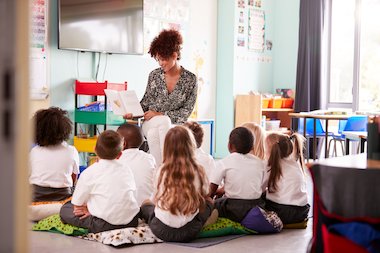Reading and writing for different purposes: topic summary
Add to My Folder
Our handy topic summaries can be used to support homework, as well as providing helpful collections of related resources for teachers to use in school or for parents to use for home learning.

Children should become very competent in reading and writing in all subjects to support the way in which they acquire knowledge. Once the art of learning to read has been mastered, reading to learn will become increasingly important in terms of both fiction and non-fiction.
Reading is not just a case of learning the words, children must also be able to interrogate the text so that they derive full meaning from it. They should read for pleasure as widely and as often as possible and experience a comprehensive range of texts including poems, stories and non-fiction. In stories they should recognise the importance of sequence and chronology, the purpose of pictures and illustrations and structural strategies like the use of chapter headings. Non-fiction texts should include dictionaries, reference books, online information, biography, newspaper articles, magazine features etc. Children should be conversant with the use of contents lists, an index, glossaries, section headings and interpreting labelled diagrams and photographs and should acquire the ability to differentiate between fact and bias.
Published 29 July 2020
Reviews
You need to be signed in to place a review.